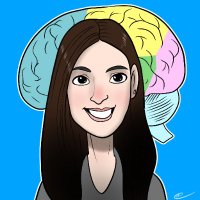
Alexander Huth
@alex_ander
Interested in how & what the brain computes. Associate professor of CS & Neuro @UTAustin. Married to the incredible @Libertysays. he/him
ID: 14572397
http://alexhuth.github.io 28-04-2008 17:43:43
2,2K Tweet
5,5K Followers
1,1K Following


🚨 Thrilled to announce that our paper "Language models and brains align due to more than next-word prediction and word-level information" has been accepted at #EMNLP2024! 🧠🤖 Work done in collaboration with Mariya Toneva. Curious about why brain and GPT-2 models align? Read on👇


🧠 Stop by poster #z11 and learn more about work by PhD student Suna Guo in collaboration with Franco Pestilli and Alexander Huth Huth Lab UT Neuroscience #whitematter #sematics #dwi #sfn2024


My 2nd to last #neuroscience paper will appear UniReps !! 🧠🧠 Maximizing Neural Regression Scores May Not Identify Good Models of the Brain 🧠🧠 w/ @KhonaMikail Mitchell Ostrow Brando Miranda Sanmi Koyejo Answering a puzzle 2 years in the making openreview.net/forum?id=vbtj0… 1/12


1/6 I usually don’t comment on these things, but Rylan Schaeffer et al.'s paper contains enough misconceptions that I thought it might be useful to address them. In short, effective dimensionality is not the whole story for model-brain linear regression, for several reasons:





In this TINS review we (w/cvnlab, eli merriam, & Eline Kupers) argue that *intensive* (many hours of data) fMRI of single individuals for single-voxel model fitting is a paradigm shift for cognitive/computational neuroimaging. tinyurl.com/intensivefmri 1/2





I'm not at neurips this year, but Chandan Singh Richard Antonello & co are presenting work on how you can just ask LLMs questions about pieces of text, and then use the answers as embeddings. This works well and is very interpretable! Poster #3801 from 11-2 today x.com/csinva/status/…



